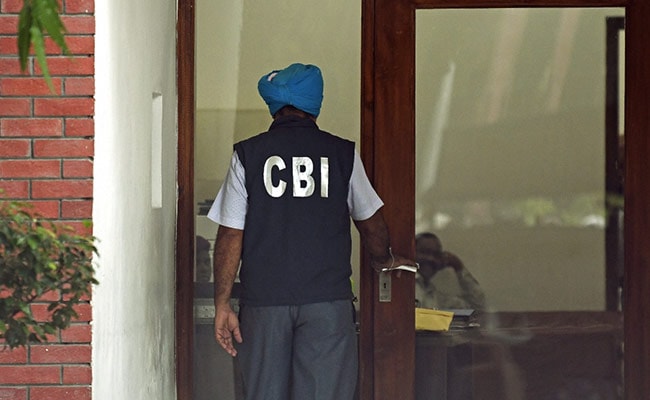
Israel has not officially decided on restrictions on Muslim worshipers during Ramadan (Document)
As the war in Gaza intensifies and the Muslim holy month of Ramadan approaches, concerns are growing over potential tensions at Jerusalem’s Al-Aqsa Mosque compound, which has been a flashpoint for violence in the past.
The site of the Israeli-annexed Old City of Jerusalem is the third holiest site in Islam and the holiest in Judaism, known to Jews as the Temple Mount.
Israel has yet to formally decide on restrictions on Muslim worshipers during the holy month of Ramadan, which is expected to begin around March 10, but proposals to limit numbers have sparked an angry backlash.
Last week, Israel’s far-right national security minister Itamar Ben Gvir said Palestinian residents of the occupied West Bank “should not be allowed” to enter Jerusalem to pray during Ramadan.
Typically, tens or even hundreds of thousands of Muslims pray and break their fast at the compound. The compound was occupied by Israel in 1967 and was later annexed along with the rest of East Jerusalem.
In 2000, then-Israeli opposition leader Ariel Sharon visited Palestine, triggering Palestinian riots and triggering the second bloody intifada that lasted several years.
Violent clashes also broke out during Ramadan last year and in 2022, when a brief but deadly war broke out in Gaza in May 2021 after Israeli police attacked mosques.
Here are the latest developments around the Al-Aqsa Mosque as Israel fights in the bloodiest Gaza war in history, triggered by Hamas’s October 7 attack.
Why does Ramadan cause tension in Jerusalem?
Violence during Ramadan often centers around Israeli policing of the compound, including restrictions on Palestinian access and any move that appears to challenge the historical status quo.
Under an agreement with Jordan, the mosque’s governing body, Jews can enter the mosque compound but cannot pray there, angering Israel’s far right.
Clashes between Palestinians and Israeli security forces have rocked the Al-Aqsa Mosque compound during Ramadan for the past three years, with Israelis attacking the mosque each time.
Clashes in East Jerusalem and the demolition of Palestinian homes in 2021 sparked nationwide Jewish-Arab violence.
Days after the clashes in Jerusalem, Hamas fired hundreds of rockets into Israel, triggering an 11-day war.
Last week, Ben Gweil, leader of a far-right party that advocates Jewish control of the compound, said Palestinian residents of the West Bank “should not be allowed” to enter Jerusalem to pray during Ramadan.
“We cannot risk it,” he said, adding: “We cannot allow women and children to be held hostage in Gaza, nor allow Hamas to celebrate on the Temple Mount.”
Israeli media have reported discussions about capping the number of worshipers, but no formal decision has been announced.
What reaction did Ben Gvir elicit?
Former prime minister and centrist opposition leader Yair Lapid refused to join the war cabinet, accusing Ben Gweil of being a political arsonist.
Ahmed Tibi, leader of one of the Arab-majority parties in the Knesset, called the minister’s proposal a “blatant violation of freedom of worship.”
Meanwhile, Israel’s Hayom newspaper said Ben Gvir was proposing “a cynical political gesture based on an extremely dangerous and unstable ideology” that would be counterproductive.
Since the Gaza war broke out on October 7, the Israeli military has been trying to separate Gaza from other Palestinian areas to avoid conflicts in Jerusalem, the West Bank or Arab towns in Israel.
Al-Aqsa Mosque is a powerful symbol for both religious and secular Palestinians, and defending it risks triggering widespread unrest.
Israel Hayom said closing the compound would be an “unnecessary provocation that would ultimately serve the interests of Hamas.”
Hamas condemned Ben Gweil’s comments as a “violation of freedom of belief” and “exacerbating” what the Palestinian group called a “religious war” against Palestinians.
The Islamist group said a surprise attack on Israel on Oct. 7 triggered the “Aqsa Flood” war and said the fighting was partly to defend the mosque.
Will there be a ceasefire in Gaza before Ramadan?
International mediators – Qatar, Egypt and the United States – have been trying to reach a ceasefire before the start of Ramadan to halt weeks of fighting and secure the release of at least some of the 130 hostages Israel says remain in Gaza. .
Last week, Israeli Prime Minister Benjamin Netanyahu said the army would launch a “robust” operation in Gaza’s southernmost city of Rafah, the last major population center to survive Israel’s ground invasion of the territory. More than half of the population has taken refuge here.
Benny Gantz, a member of Israel’s war cabinet, warned this week that “if the hostages have not returned home by Ramadan, fighting will continue everywhere, including in the Rafah area.”
Gantz served as defense minister in 2014, when Israel launched its final ground invasion of Gaza, which also occurred during Ramadan.
(Except for the headline, this story has not been edited by NDTV staff and is published from a syndicated feed.)






